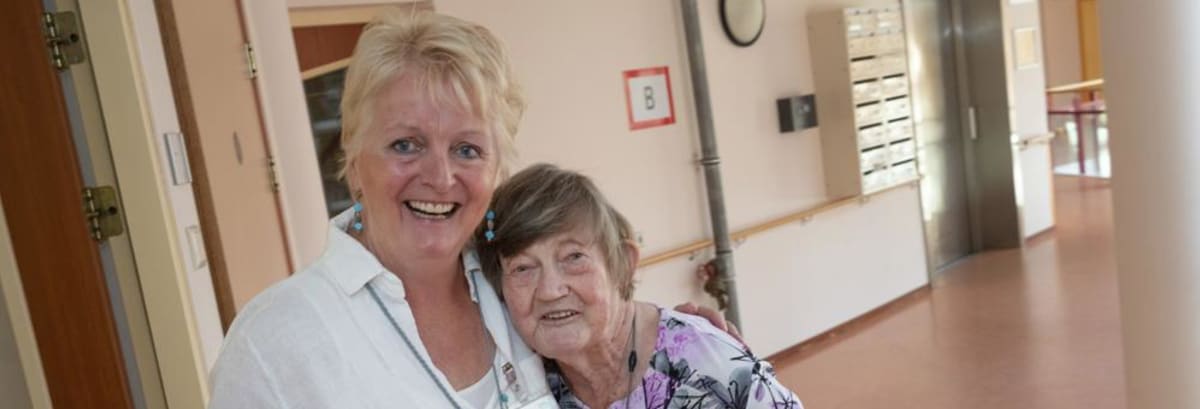The Special Interest Group on Quality Improvement in Long-Term Care has been established to unite academics, policymakers, care professionals, service providers, and care users interested in improving quality in long-term care. The group aims to address the challenges specific to this field by facilitating discussions, sharing practical experiences, and promoting networking opportunities. This special group is also tasked in organizing regular webinars and exchange meetings, to inspire collective action towards improving care standards. Are you interested? You can find more information on the website of GOLCT and you can apply to join this special interest group.
Vilans at International Day of Care of Support GOLTC online event
Published on: 30-10-2024
Yesterday (October 29) marked the International Day of Care and Support, celebrating the importance of care services worldwide. The Global Observatory of Long-Term Care (GOLTC) organized a full-day webinar that brought together experts from across the globe to discuss ways to advance robust, responsive, and equitable LTC systems. Vilans was represented by our expert in monitoring and impact, Bellis van den Berg, who shared her expertise on quality improvement.
This day is a powerful reminder of the shared challenges we face and the collective efforts needed to make long-term care truly dignified and person-centered. It is a privilege to celebrate this special occasion with experts in LTC from all over the world.
Bellis van den Berg
Key Themes the Webinar
The webinar focused on six key themes:
- unmet needs
- community-based care
- financing models
- workforce support
- care home innovations
- quality improvement
Unmet Needs: The discussion provided fresh perspectives on 'care poverty' as a concept for understanding unmet needs among older adults, highlighting socioeconomic disparities in long-term care. The session also emphasized the challenges of accessing both informal and formal care, stressing the importance of addressing these gaps globally.
Community-Based Care: The session gave an overview of innovative neighborhood networks and community initiatives from different countries designed to help older adults stay at home longer with support from local services and technology.
World Health Organization's Work on Long-Term Care: This session highlighted WHO's initiatives and regional priorities in long-term care (LTC). Discussions covered LTC in the global policy agenda, regional priorities across Europe, the Americas, and Southeast Asia, and support for long-term caregivers in low- and middle-income countries. Emphasis was also placed on empowering informal caregivers, providing them with core information needed for effective care and self-care. These discussions underlined the WHO's efforts to strengthen LTC frameworks globally and regionally, addressing specific regional needs and promoting comprehensive care systems.
Financing and Workforce Challenges: Sustainable financing strategies were also a central focus, especially for low- and middle-income countries, where LTC often places a heavy financial burden on families. Speakers emphasized the need for public-private solutions to make care accessible. Equally critical were the discussions around workforce challenges, underlining the urgent need to improve conditions for LTC workers, whose roles are fundamental to delivering quality care.
Innovative Care Homes: Research on innovations in care home design were presented, focusing on creating environments that enhance resident well-being and social inclusion, underscoring how physical environment can influence the quality of life in residential settings.
Quality Improvement in LTC: The discussion focused on what quality means in long-term care and speakers gave overviews of different approaches to enhancing care quality. This session addressed quality management, strategies for improving nursing home care, and regulatory frameworks to support person-centered services. The insights highlighted the complexity of defining and achieving quality across various care settings.
Quality Improvement and Support in Dutch Nursing Homes – Dignity and Pride at Location Program
Bellis van den Berg presented the Dignity and Pride on Location program, sharing practical insights into how Dutch nursing homes are using the Dutch Quality Framework to improve care quality.
Since desirable care outcomes are subjective and personal, paying attention to processes, reflections, and openness is essential. The WHO will soon publish principles underpinning quality in long-term care, shifting from a quality assurance approach to a quality management approach where continuous learning and improvement are central. This aligns well with the Dutch approach to quality in nursing home care.
Bellis van den Berg
Dignity and Pride on Location (2018 - 2023) was a large-scale national program aimed at the provision of dignified and high-quality care while fostering a sense of pride among nursing home staff.
Bellis emphasized the impact of the quality scan, one of the core activities within the program which engaged stakeholders across all levels within the organizations—from management to care providers on the work floor. This inclusive approach fostered transparency and helped identify targeted areas for improvement.
In our analysis of the program data, we concluded that the quality scan, which included perspectives from various stakeholders, significantly fostered openness, dialogue, and awareness about quality of care. Notable improvements were achieved across all quality themes with the support of external coaches. Developing a supportive environment and a culture of learning is challenging but ultimately valuable for ensuring safety and person-centered care.
Bellis van den Berg
A collective vision for Better Care and Support
The diverse perspectives we heard today underscored that, despite different regional challenges, there is a shared vision—a commitment to making care not only accessible but also compassionate and high-quality.
Bellis van den Berg
We commend the Global Observatory of Long-Term Care (GOLTC) for organizing such an insightful event and for honoring the International Day of Care and Support in a meaningful way. Through such collective learning and cooperation, we pave the path for a future of care that genuinely upholds dignity, quality, and accessibility for all.






